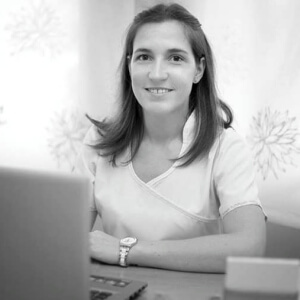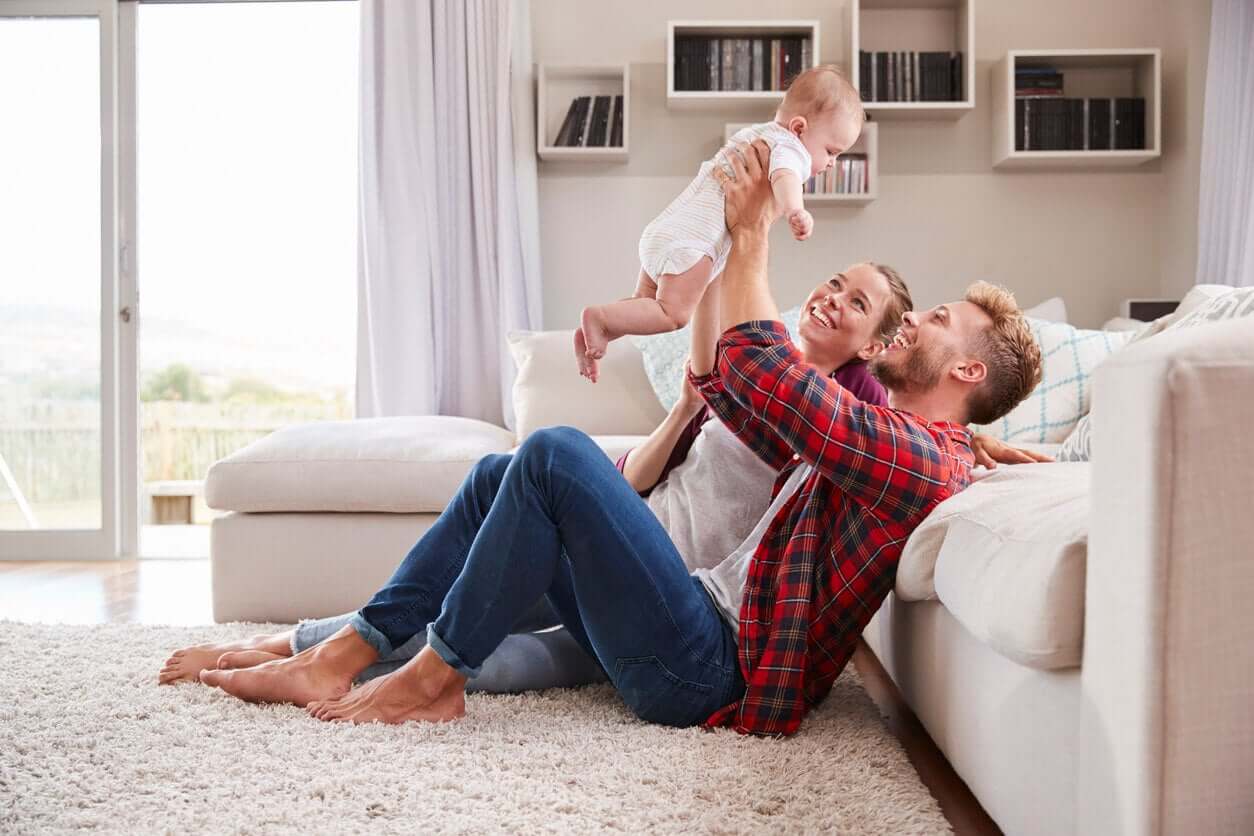Getting Pregnant at 20: What You Should Know


Written and verified by the pediatrician Marcela Alejandra Caffulli
Nature is wise, but when it comes to family planning, this is quite controversial. That’s because, while your body’s in optimal condition to get pregnant at 20, your mind and your desires may not be in tune with this.
As in almost any aspect of life, motherhood in your 20s has its pros and cons. The most important thing is that you’re well informed and carefully choose the best path for yourself.
So, if you find yourself at the beginning of this decade, which goes from 20 to 30 years, keep reading this article!
There’s never an ideal time to get pregnant
It may seem like a somewhat pessimistic phrase, but when you plan your motherhood for the first time, you’ll realize that we’re not exaggerating. In fact, it’s not wrong to accept that there are no ideal scenarios and that the real ones, although imperfect, can be even better.
When the maternal instinct is awakened, hundreds of questions hover around your head: How, when, where, and with whom. And even if the anxiety of making a decision attacks you, it’s important to stop and analyze each one of them.
Motherhood is beautiful but it changes a woman’s life quite a bit. Depending on the circumstances, this can be more or less positive, more or less simple… but in one way or another, it implies a new chapter in your life.
Therefore, if you’re in your 20s and you want to be a mother, it’s important that you take into account all the aspects that we’ll mention below.

The advantages and disadvantages of getting pregnant at 20
Despite what outsiders may say, the decision to carry out a pregnancy rests with the parents. Therefore, with your partner, you can search for advice and for information on the internet or talk to parents in your environment about their experiences. Still, the final decision is in your hands.
The good thing about being a mother at 20
Despite the social trends of the last decades, from a biological perspective, the decade between the ages of 20 and 30 is the best time to conceive and to carry a baby.
Your fertility is optimal at this age, and with few exceptions, most women under the age of 25 become pregnant within the first year of trying. In fact, the fertility rate begins to decline after the age of 30 and reaches very low values before the age of 40.
On the other hand, as the mother’s age advances, the risk of miscarriages also increases. In statistical terms, if the pregnancy occurs after the age of 40, the probability of losing it is 5 times higher than at the age of 20.
Another issue to consider is that with the passing of time, the risk of suffering obstetric complications increases, and the same happens with certain genetic illnesses in the baby.
This phenomenon is closely related to the quality and quantity of the oocytes, which decrease over time. But in addition to age, there are other factors that predispose women to cellular aging, such as tobacco and alcohol consumption and obesity.
Finally, at 20, you have a good tolerance level for fatigue and you have more energy to raise a child than when you’re older.
The cons of being a mother at 20
In the last decade, the tendency to put off motherhood has been noted in various parts of the world. In fact, in Europe, it’s most common for women to give birth to their first child closer to 30 than to 20. But this isn’t a whimsical fad, it has a fairly logical explanation.
The generation of centennials has very little in common with those of our mothers and grandmothers. Young people today declare themselves the “innovative generation” and seem to have a lot to do before they have children.
According to a survey conducted in the United Kingdom in 2006, young British women had decided to postpone motherhood for various reasons:
- Financial issues: They have unprofitable jobs, college debts, they don’t have the ability to fend for themselves, and they live with their parents.
- Careers: Due to the increase in life expectancy, today’s young women spend more time developing and establishing themselves professionally. In fact, this allows them to access better jobs and outperform their non-professional peers.
- Lack of a stable partner: Although this isn’t perceived as something negative, the majority of those surveyed agreed on the desire to settle down with a partner before embarking on the path of motherhood.

Some final considerations
In addition to everything we’ve analyzed, the truth is that getting pregnant at 20 limits many of the experiences that some women want to experience at this stage. And while motherhood is a beautiful part of life, it deserves to be experienced when you really want to.
Nature is wise, but when it comes to family planning, this is quite controversial. That’s because, while your body’s in optimal condition to get pregnant at 20, your mind and your desires may not be in tune with this.
As in almost any aspect of life, motherhood in your 20s has its pros and cons. The most important thing is that you’re well informed and carefully choose the best path for yourself.
So, if you find yourself at the beginning of this decade, which goes from 20 to 30 years, keep reading this article!
There’s never an ideal time to get pregnant
It may seem like a somewhat pessimistic phrase, but when you plan your motherhood for the first time, you’ll realize that we’re not exaggerating. In fact, it’s not wrong to accept that there are no ideal scenarios and that the real ones, although imperfect, can be even better.
When the maternal instinct is awakened, hundreds of questions hover around your head: How, when, where, and with whom. And even if the anxiety of making a decision attacks you, it’s important to stop and analyze each one of them.
Motherhood is beautiful but it changes a woman’s life quite a bit. Depending on the circumstances, this can be more or less positive, more or less simple… but in one way or another, it implies a new chapter in your life.
Therefore, if you’re in your 20s and you want to be a mother, it’s important that you take into account all the aspects that we’ll mention below.

The advantages and disadvantages of getting pregnant at 20
Despite what outsiders may say, the decision to carry out a pregnancy rests with the parents. Therefore, with your partner, you can search for advice and for information on the internet or talk to parents in your environment about their experiences. Still, the final decision is in your hands.
The good thing about being a mother at 20
Despite the social trends of the last decades, from a biological perspective, the decade between the ages of 20 and 30 is the best time to conceive and to carry a baby.
Your fertility is optimal at this age, and with few exceptions, most women under the age of 25 become pregnant within the first year of trying. In fact, the fertility rate begins to decline after the age of 30 and reaches very low values before the age of 40.
On the other hand, as the mother’s age advances, the risk of miscarriages also increases. In statistical terms, if the pregnancy occurs after the age of 40, the probability of losing it is 5 times higher than at the age of 20.
Another issue to consider is that with the passing of time, the risk of suffering obstetric complications increases, and the same happens with certain genetic illnesses in the baby.
This phenomenon is closely related to the quality and quantity of the oocytes, which decrease over time. But in addition to age, there are other factors that predispose women to cellular aging, such as tobacco and alcohol consumption and obesity.
Finally, at 20, you have a good tolerance level for fatigue and you have more energy to raise a child than when you’re older.
The cons of being a mother at 20
In the last decade, the tendency to put off motherhood has been noted in various parts of the world. In fact, in Europe, it’s most common for women to give birth to their first child closer to 30 than to 20. But this isn’t a whimsical fad, it has a fairly logical explanation.
The generation of centennials has very little in common with those of our mothers and grandmothers. Young people today declare themselves the “innovative generation” and seem to have a lot to do before they have children.
According to a survey conducted in the United Kingdom in 2006, young British women had decided to postpone motherhood for various reasons:
- Financial issues: They have unprofitable jobs, college debts, they don’t have the ability to fend for themselves, and they live with their parents.
- Careers: Due to the increase in life expectancy, today’s young women spend more time developing and establishing themselves professionally. In fact, this allows them to access better jobs and outperform their non-professional peers.
- Lack of a stable partner: Although this isn’t perceived as something negative, the majority of those surveyed agreed on the desire to settle down with a partner before embarking on the path of motherhood.

Some final considerations
In addition to everything we’ve analyzed, the truth is that getting pregnant at 20 limits many of the experiences that some women want to experience at this stage. And while motherhood is a beautiful part of life, it deserves to be experienced when you really want to.
All cited sources were thoroughly reviewed by our team to ensure their quality, reliability, currency, and validity. The bibliography of this article was considered reliable and of academic or scientific accuracy.
- Utting D, Bewley S. Family planning and age-related reproductive risk. The Obstetrician & Gynaecologist 2011;13:35–41. Disponible en: https://obgyn.onlinelibrary.wiley.com/doi/abs/10.1576/toag.13.1.35.27639
- Vollenhoven B, Hunt S. Ovarian ageing and the impact on female fertility. F1000Res. 2018 Nov 22;7:F1000 Faculty Rev-1835. doi: 10.12688/f1000research.16509.1. PMID: 30542611; PMCID: PMC6259486. Disponible en: https://pubmed.ncbi.nlm.nih.gov/30542611/
- American College of Obstetricians and Gynecologists Committee on Gynecologic Practice and Practice Committee. Female age-related fertility decline. Committee Opinion No. 589. Fertil Steril. 2014 Mar;101(3):633-4. doi: 10.1016/j.fertnstert.2013.12.032. PMID: 24559617. Disponible en: https://pubmed.ncbi.nlm.nih.gov/24559617/
- BBC Newsbeat. ‘We’re not lazy, we’re innovative’ – Generation Z hits back in live debate. Disponible en: https://www.bbc.com/news/newsbeat-41348207
This text is provided for informational purposes only and does not replace consultation with a professional. If in doubt, consult your specialist.








